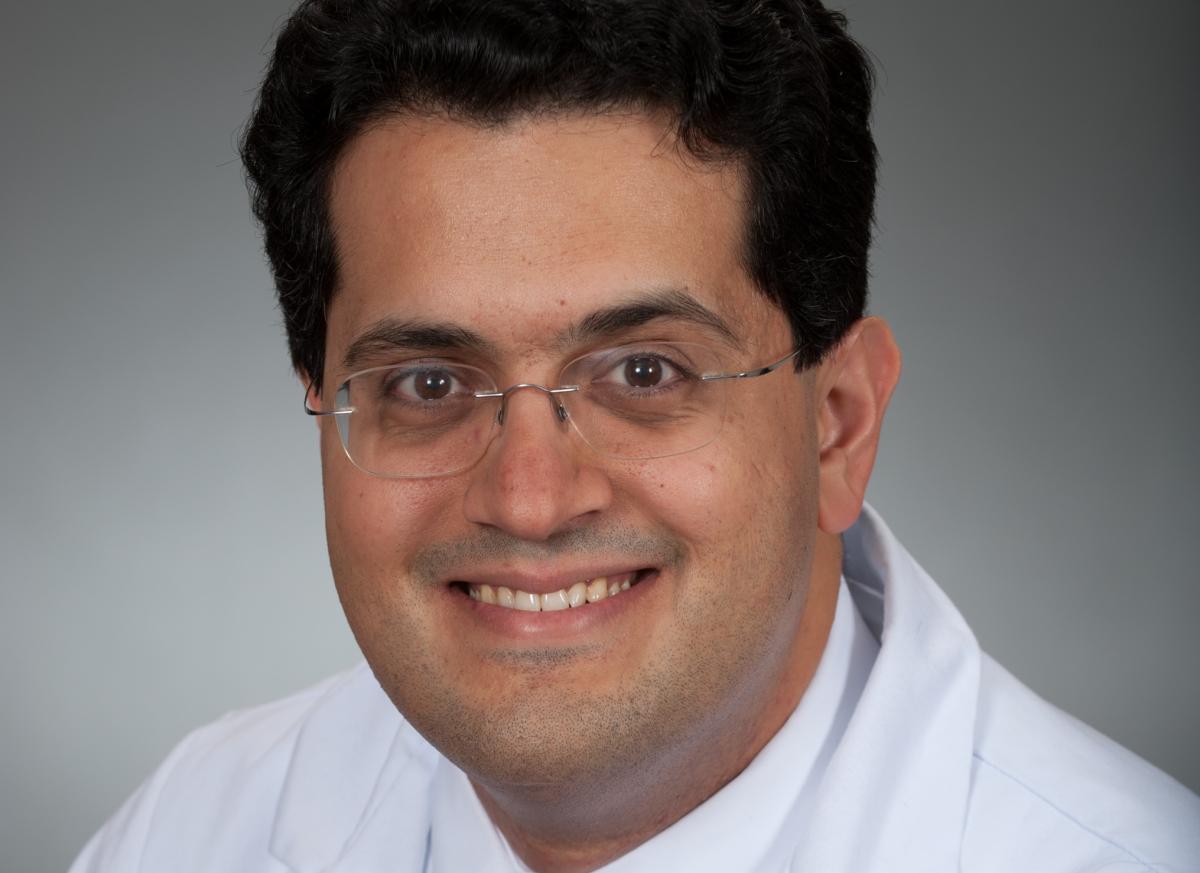Waddah Al-Refaie: In Pursuit of Equitable, Appropriate Cancer Care for All

Posted in GUMC Stories
 Waddah B. Al-Refaie, MD, FACS, doesn’t hesitate for a nanosecond when asked why he chose to come to Georgetown University Medical Center last October. To Al-Refaie, who is establishing a division of surgical oncology at MedStar Georgetown University Hospital (MGUH), there are obvious clinical advantages: “Georgetown has a prestigious medical school and is partnered with a hospital that is committed to its patients with cancer. And Georgetown Lombardi Comprehensive Cancer Center is the only stand-alone center of its kind in the Washington, D.C., metro area, so the opportunities are enormous.”
Waddah B. Al-Refaie, MD, FACS, doesn’t hesitate for a nanosecond when asked why he chose to come to Georgetown University Medical Center last October. To Al-Refaie, who is establishing a division of surgical oncology at MedStar Georgetown University Hospital (MGUH), there are obvious clinical advantages: “Georgetown has a prestigious medical school and is partnered with a hospital that is committed to its patients with cancer. And Georgetown Lombardi Comprehensive Cancer Center is the only stand-alone center of its kind in the Washington, D.C., metro area, so the opportunities are enormous.”
But there is that other singular quality to Georgetown that he says will help him with the research he very much wants to do: “The institution has a wonderful legacy of compassionate care and for research that furthers that mission.”
Al-Refaie — who is also chief of surgical oncology at MGUH and surgeon-in-chief for Georgetown Lombardi — feels he is in the perfect position to do the bold research he knows will matter to the patients he tends to on his surgical table — and to many others.
He wants to make sure patients are treated with the right amount of cancer care, which can include surgery, drug treatment and radiation. In the real world, Al-Refaie explains, some patients receive too much therapy, and some, too little.
For example, older cancer patients, who are often frail or weakened by other illnesses, are sometimes treated more aggressively than they should be given their state of health. And some patient populations, which can include the medically underserved or minorities, may receive less treatment than is necessary to treat their cancer because of limited access to care.
The roots of what could be overly aggressive cancer treatment in the elderly are likely the clinical trials that set standards of cancer care, says Al-Refaie, who specializes in gastrointestinal cancers, sarcoma and melanoma.
“Cancer clinical trials typically under-enroll older individuals, so the makeup of cancer trials are not representative of the patients who we see in the community in day-to-day practice,” he says. “One can argue that the results of cancer trials perhaps apply to younger people who are healthier and fully insured.”
This is an issue, he says, because older patients represent a significant fraction of that cancer population. “I have to ask — do these elderly patients need the same treatments tested in these clinical trials? I want to know if we can reduce the doses of chemotherapy, give these patients less treatment — and I want to know that if we do that, are we undermining their exposure to cancer treatment, compromising their potential recovery?
“If you have an individual who is above the age of 80, does he or she require a big operation with chemotherapy and maybe radiation therapy when we know they cannot tolerate all three of them?” Al-Refaie asks. “Does survival become the endpoint for an older patient, versus quality of life? We may not understand what they need, and these are very important questions that patients ask us in clinic all the time.”
Al-Refaie believes he has a way to answer these questions.
“We can conduct population-based studies. With the expertise of Georgetown Lombardi and MedStar Health Research Institute, we can look at data on older individuals who underwent treatments and see what proportion completed the treatment. And if they didn’t, why didn’t they? We can use that information to access real-time data on older patients and assess their outcomes after surgery. These results will shed light on more intervention-based studies testing when to offer more treatment or temper it. This, in turn, will make treatment more personalized.
“That doesn’t mean you withhold treatment,” he says. “You give patients appropriate treatment.”
Addressing the unique treatment challenges in some ethnic and racial minorities presents a different set of issues, says Al-Refaie. “This is an issue of either a barrier to care, or one of withholding treatment due to comorbidities — other illnesses. The patients are typically undertreated or not treated at all.”
These are, of course, not issues Al-Refaie has seen only during his short time at Georgetown. They were prevalent during his medical school education in Ireland, his internship in Kuwait (where he was born), during additional training at the University of California San Diego, at a fellowship at the University of Texas MD Anderson Cancer Center, and in his work at the University of Minnesota.
But now, at Georgetown, Al-Refaie feels he is in the right place to tackle these issues. Not only is access to care a major issue in Washington, the nation’s capital may be the best place to discuss the provision of cancer care that is both equitable and appropriate to the individual. As he says, “I have found the perfect home for my interests and that is very exciting.”
By Renee Twombly, GUMC Communications
